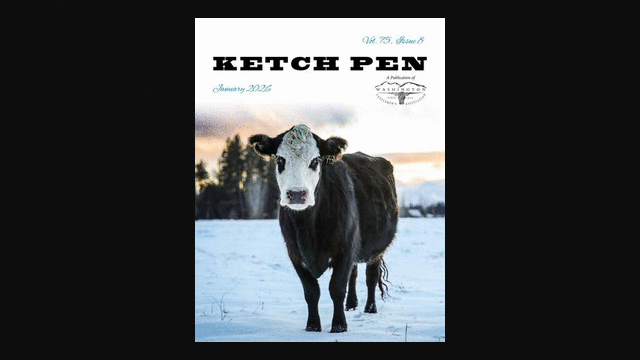Statement Correcting Internet Falsehoods About mRNA Vaccines in Cattle
- WA Cattlemen's Association

- Apr 5, 2023
- 2 min read
Updated: Apr 11, 2023
Our WCA office has received several phone calls this week with questions regarding information floating around about the use of mRNA vaccines in cattle. Our WCA EVP, Chelsea Hajny wanted to share these points and statement from our friends at the NCBA. It is her hope "this helps our members answer questions as there is a significant amount of misinformation floating around right now on mRNA Vaccines in our beef."
Today, the National Cattlemen’s Beef Association (NCBA) released a statement in regard to false information circulating on social media about the use of mRNA vaccines in cattle:
“There are no current mRNA vaccines licensed for use in beef cattle in the United States. Cattle farmers and ranchers do vaccinate cattle to treat and prevent many diseases, but presently none of these vaccines include mRNA technology.” (see press release here)
Also, on Thursday, March 30th, NCBA Producer Education held a Webinar on this very topic. Please reach out to the NCBA Producer Education Team for the link to that webinar.
Key points:
There are no current mRNA vaccines licensed for use in beef cattle in the U.S. or worldwide.
mRNA vaccine technology has been around for decades and is not an experimental method.
Research on mRNA vaccines in livestock has been ongoing for decades, which indicates that there will, at some point, be mRNA vaccines for cattle, but not until there has been sufficient research.
We vaccinate cattle to treat and prevent many diseases, including respiratory and clostridial disease, to keep them healthy.
There are new vaccines using recombinant antigen that is based on tick vaccine technology. It is a subunit that uses a delayed release carrier to enhance the immune response, so it can be a single dose.
In other words, a piece of the pathogen (virus or bacteria) is specifically pulled out to develop the vaccine so the host’s immune system of the recognizes that piece as foreign and develops an immune response to it.
Regardless of the vaccine technology, the vaccines are ‘digested’ after administered, which means their components are not present in the animal.
Because the vaccine is processed well before slaughter and there is no residue remaining, the meat is safe to consume.





Comments